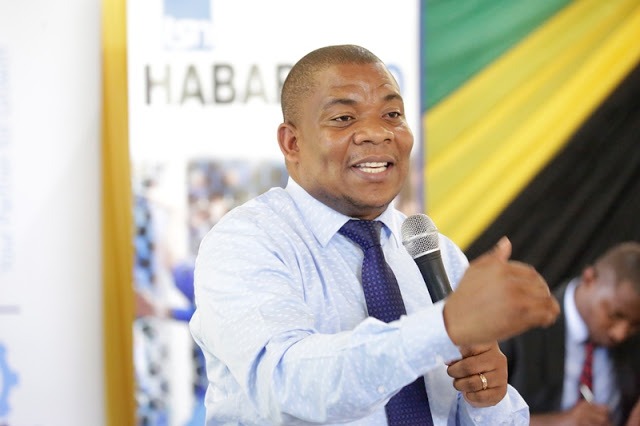In a land blessed with expansive fertile terrain and rich natural resources, it comes as a surprise that Tanzania imports between 90-92% of its wheat. This stark contrast between potential and reality is now being addressed in Njombe, a region poised to usher in an agricultural transformation that could significantly diminish Tanzania’s dependence on foreign wheat.
A candid conversation with regional commissioner (RC) Anthony Mtaka, an authoritative figure within the Tanzanian government, unveiled the underlying issues. While Tanzania flaunts globally-renowned wonders such as Kilimanjaro and Serengeti, it paradoxically underutilized its abundant agricultural assets.
“We possess some of the world’s most captivating natural treasures, yet the vast tracts of fertile land lie dormant,” lamented RC.
Indeed, while there have been commendable advancements in infrastructure, with a surge in the construction of roads, bridges, and rail networks, the agricultural sector still waits for its renaissance.
A Presidential Vision:
Embracing the agricultural potential, the President of Tanzania, H.E Dr Samia Suluhu Hassan has a comprehensive vision which is setting a new discourse. It’s not just about acknowledging the sector but about revolutionizing it. The commitment from the government and their proactive approach to this vision is a glimmer of hope for the nation.
Elevating this optimism, he says Minister of Agricture Hussein Bashe’s alignment with the President’s outlook promises to bring this aspiration closer to reality. There’s a palpable sense of anticipation, with many seeing Tanzania evolving into Africa’s breadbasket.
Njombe’s Promise:
Njombe, particularly the district of Makete, stands out with its prodigious capacity for wheat production. If leveraged effectively, just this district alone could cater to half of the national wheat demand. Such a transformation would not only invigorate local economies but also offset smaller revenue avenues, including the contentious public restroom fees.
RC opined, “Harnessing Makete’s 250,000 hectares could reshape our national agricultural profile, drastically reducing import reliance.”
Sprawling across a vast 250,000 hectares, Makete’s fertile terrains are an untapped goldmine. Its topography and climate, coupled with its expansive reach, render it a prime candidate for large-scale wheat cultivation. Wheat, a staple in many households, has a multifaceted role, catering to both direct consumption and as a raw material in various industries, from bakeries to breweries.
National Implications of Makete’s Potential
RC’s emphasis on harnessing Makete’s lands isn’t just about local development; it’s a strategic directive with national implications. A successful wheat initiative in Makete could significantly bolster the nation’s agricultural output. As a result, this would not only supply domestic markets but also serve as a buffer stock, ensuring food security during lean seasons or unforeseen crises.
But there’s an even more significant dimension to this vision: reducing import reliance. Currently, if the nation is importing substantial amounts of wheat to meet its demands, it means a substantial outflow of foreign exchange, potential exposure to international market volatility, and a dependency on external factors. This not only strains the national coffers but also makes the country vulnerable to price hikes and supply chain disruptions on the global stage.
Fostering Community Cohesion:
A transformation of this scale hinges on profound community engagement. It’s imperative that leaders across all sectors – religious, political, and business – unite for this cause.
“A collective vision ensures collective progress,” RC emphasized. For Njombe, and by extension Tanzania, this might very well mark the dawn of an agricultural metamorphosis, propelling the nation from a wheat importer to a self-sustaining, and perhaps even exporting, powerhouse.
Government’s Unwavering Support for Wheat Production in Njombe
The government’s commitment to fostering wheat production in Njombe is crystal clear and is fast gaining momentum. Recent statements and actions are a testament to this commitment and paint a hopeful picture for the region’s agricultural aspirations.
Hon. Bashe has been shown the vast potential that Makete holds for wheat production. By acknowledging the readiness of Makete for wheat farming, he has taken commendable steps to actualize this vision. An initial provision of 80 tons of seeds was dispatched for pilot farming. This gesture itself underscores the government’s faith in the region’s capabilities. Anyone visiting Makete can now witness the sprawling wheat fields and can attest to the burgeoning production activities in the area.
The minister’s support doesn’t stop there. He is unequivocally aligned with Njombe’s vision, lending his support a full 100%. Following the success of the pilot phase, there’s now a plan to provide an even more significant consignment – a whopping 1000 tons of seeds. And here’s the best part: these seeds will be distributed free of cost to the locals. The clear message to the citizens is: the government has done its part in providing the seeds, and now it’s the citizens’ turn to embrace farming wholeheartedly.
Additionally, ASA has also joined the cause. They’ve dispatched their team to the region, and even more commendably, they have set up their seed farm in Makete. This move is strategic. Having a seed farm in the heart of the production zone means a consistent supply of quality seeds. It ensures that as production scales up, the region isn’t hampered by seed shortages. It’s a clear indication that all stakeholders are looking at the long-term prospects and sustainability of wheat production in Makete.
In essence, with the combined efforts of government officials, local authorities, and agricultural agencies like ASA, Njombe’s wheat production dream is well on its way to becoming a glorious reality. The foundations have been laid, the resources mobilized, and the vision articulated. All that remains is for the hardworking people of Makete to take up the mantle, till their lands, and chart a prosperous path forward. With such support, Njombe’s future in wheat production shines bright.
+++Neema Munisi is a leading expert in agribusiness and gender-focused food systems. She is also a trainer on business-related topics. For consultancy, write to her. Email: neema.munisi80@gmail.com
